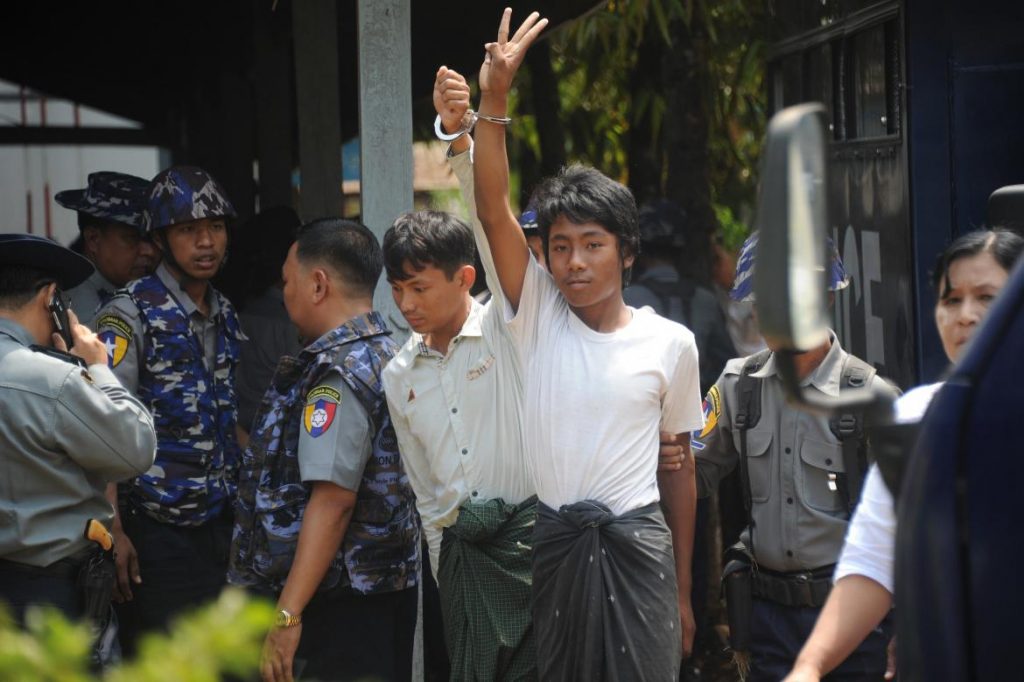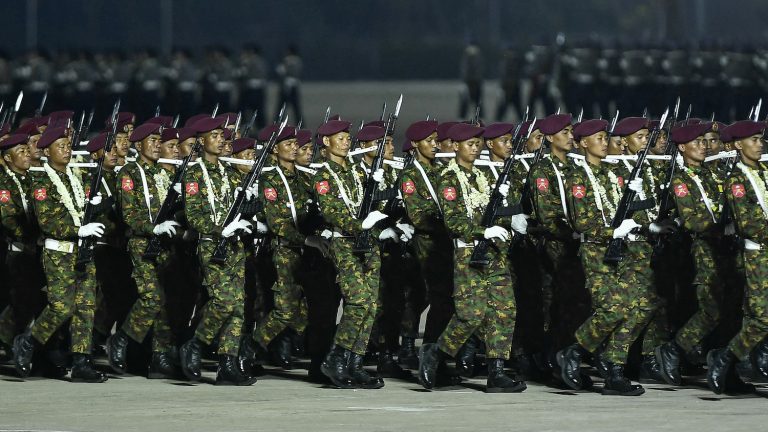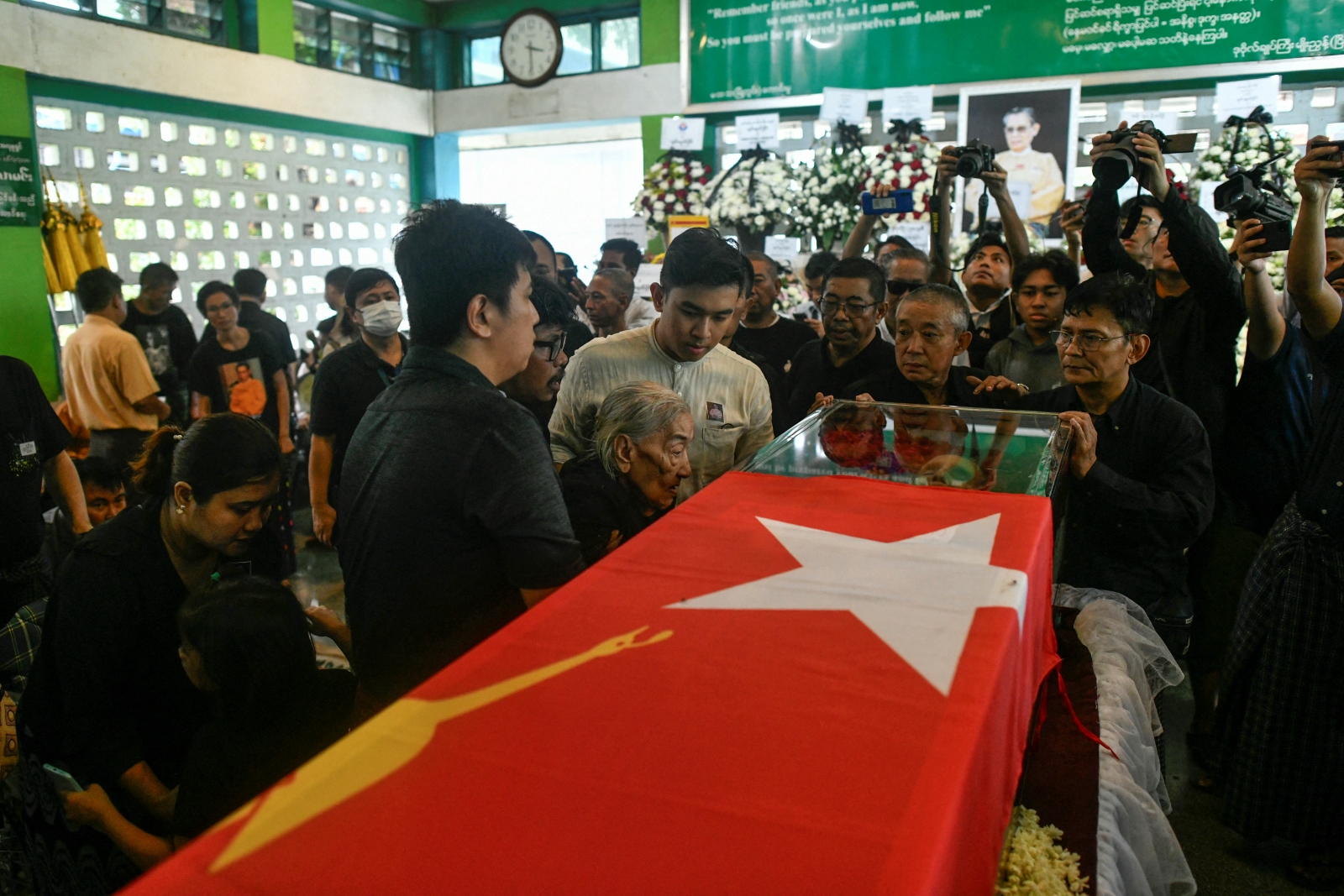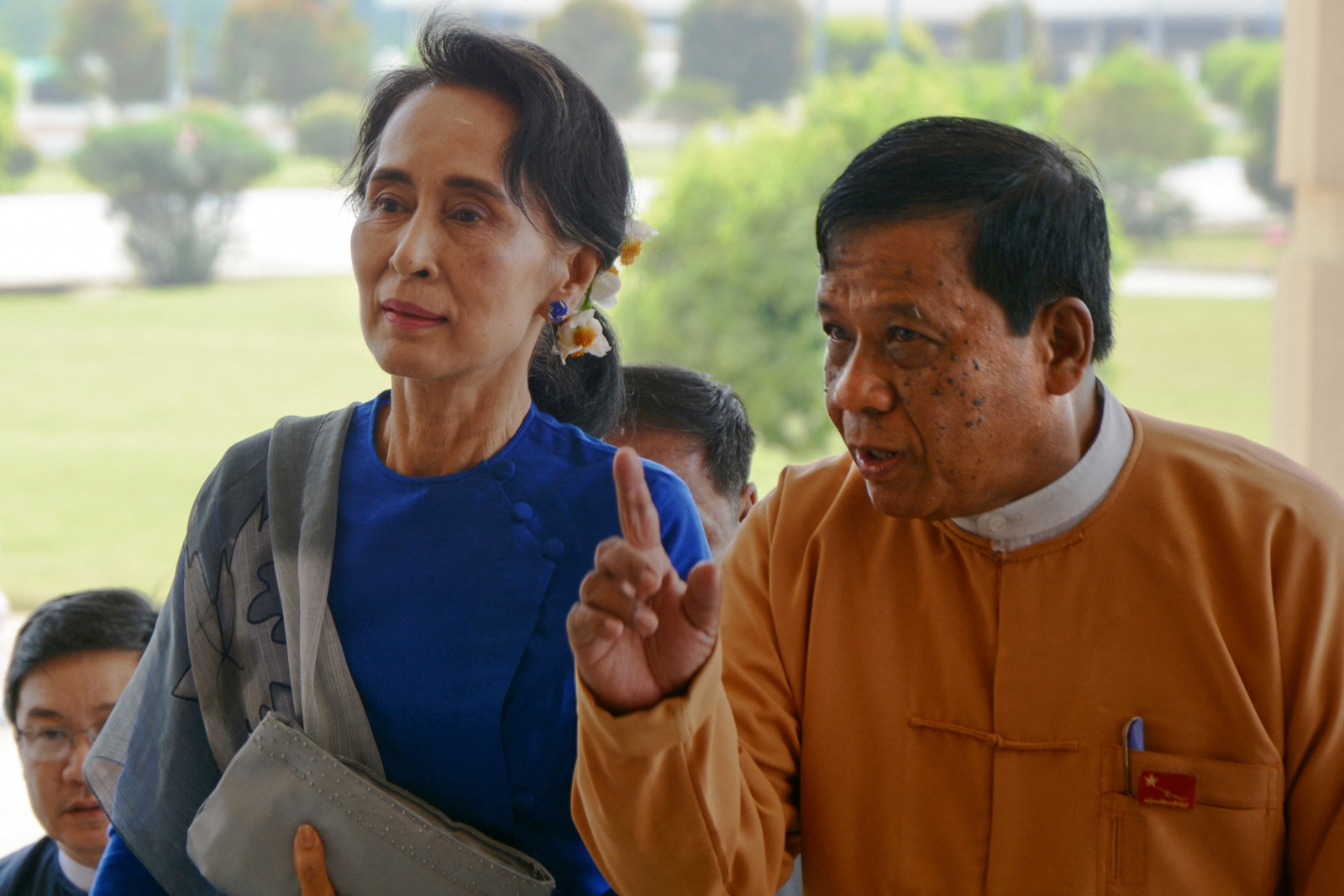In November 2014, the government-appointed Committee for Scrutinising Remaining Political Prisoners said there were no political prisoners left in detention, both fulfilling its own mandate and belatedly fulfilling a pledge by President U Thein Sein to release all prisoners of conscience by the end of 2013.
Myanmar’s two civil society groups that monitor politically-motivated jailings, the Assistance Association for Political Prisoners and the Former Political Prisoners Society, disputed the statement and highlighted more than two dozen inmates they claimed were unjustly sentenced. Soon after, both organisations were shut out from lobbying the government and the scrutinising committee was disbanded.
The number of political prisoners ballooned the following year, in what many rights groups claimed was a concerted government effort to stifle dissent ahead of last year’s general election.
Fresh land rights protests, demonstrations against China’s role in the Letpadaung copper mine and the brutal arrest of student activists opposed to education reform saw scores sentenced and many more held on remand. By June, the AAPP claimed that 169 political prisoners were serving jail terms and another 446 were on trial. The next month, U Thein Sein’s biggest amnesty saw the release of nearly 7,000 inmates, of whom only 13 were prisoners of conscience.
The President’s latest amnesty, announced on January 22, has reduced the number of political prisoners to the lowest level since the end of 2014. The AAPP said 52 of the 102 inmates released last week were prisoners of conscience, leaving 84 behind bars.
Support more independent journalism like this. Sign up to be a Frontier member.
At least three of those freed last week were sentenced before the government claimed there were no political prisoners left in Myanmar’s jails. They include Ko Naung Naung, sentenced in October 2014 for peacefully demonstrating outside Yangon City Hall to call for the government’s resignation, and Shin Nyana, the leader of a Buddhist sect who was sentenced to 20 years in 2010 for religious offences. Several dozen farmers and activists arrested last year for protesting against evictions and land seizures also regained their freedom on January 22.
Though not included in the AAPP’s figures, last week also saw the release of New Zealander Phil Blackwood and two Myanmar associates from the former V Gastro Bar in Yangon’s Bahan Township. An online flyer that used a psychedelic image of the Buddha wearing headphones to promote a cheap drinks night at the bar resulted in the trio receiving two-and-a-half year sentences last March for insulting religion. During the trial hardline nationalist monks demonstrated outside the Bahan court and intimidated defence lawyers.
Political considerations
The day after the amnesty, the state-run Global New Light of Myanmar referred to Mr Blackwood’s release without naming him, saying the decision was made by the Ministry of Home Affairs in the interests of “maintaining bilateral friendship and relations”.
The government is no stranger to releasing foreign prisoners in the interest of fostering cordial bilateral relations. President U Thein Sein’s previous amnesty last July saw the release of 155 Chinese nationals convicted of illegal logging and other offences in Kachin State. The Chinese government made clear its irritation at the 20-year sentences handed down in the case and the group was released and sent home a week after being convicted. Mr Blackwood, on the other hand, spent more than a year in Yangon’s notorious Insein prison before last week’s pardon.
Tellingly, it was the military-controlled Home Affairs Ministry that commented on Mr Blackwood’s release, and not President U Thein Sein.
The 2008 Constitution grants the president sole authority to pardon prisoners, without requiring the assent of the military-dominated National Defence and Security Council. In reality, the 84 prisoners of conscience that remain in Myanmar’s jails suggest that the attitude of the military is a consideration in any decision to grant a pardon.
Among those still in jail are former Air Force pilot U Chit Ko, who is serving a 10-year sentence for asking the International Labour Organization to help him leave his unit, and former captain U Nay Lin Dwe, who sentenced to 20 years for posting articles online which highlighted problems facing military personnel.
Kachin farmer U Laphai Gam remains in Myitkyina prison for his alleged involvement in the Kachin Independence Army, despite his co-defendant’s sentence being overturned by the Supreme Court, and well-documented allegations he was subjected to extreme physical and sexual torture while in military custody. Five employees from the now-defunct Unity journal remain in jail at Pakokku prison over a report about an alleged military-run chemical weapons factory in Magway Region.
Another 11 prisoners, accused over their links with the All Burma Students Democratic Front, Karen National Union or Restoration Council of Shan State, remain in various prisons despite all three non-state armed groups signing last October’s national ceasefire agreement with the government and despite state-run media reporting that the amnesty was proclaimed to celebrate the conclusion of the government’s first Union Peace Conference.
Other political considerations are also evident. The pardoning of Mr Blackwood and his two colleagues suggests the outgoing government is less concerned than it has been in the past about the possibility of alienating the Buddhist ultranationalist Association for the Protection of Race and Religion, known by its Myanmar acronym as Ma Ba Tha, a firm supporter of the trio’s prosecution.
However, columnist and former National League for Democracy information officer U Htin Lin Oo remains in Monywa prison, where he is serving a two-year jail sentence with hard labour for insulting religion. He was charged after making a speech at a literary festival in which he criticised the use of Buddhism as a tool for extremism. He said an excerpt of the speech, which had been circulated on social media by Ma Ba Tha and widely shared, was taken out of context.
Students left to languish
Much of the focus on last week’s amnesty was on the 53 student activists held on remand at Thayawady prison in Bago Region since their arrest last March during a brutal police crackdown on their protest against the National Education Law at nearby Letpadan.
At a news conference last October, legal observers, the AAPP and one of the students’ lawyers said their trial was being deliberately delayed and cited frequent incidents in which the presiding judge suddenly absented himself from hearings.
As the trial continues, concerns have been raised over the health of those on remand.
Matthew Smith, executive director of Fortify Rights, said on January 25 that their continued detention “could become a matter of life and death”. In a statement released on January 22 to mark the latest releases, the AAPP called on U Thein Sein to use his remaining two months in office to intervene in the case and unofficially release the detained students.
“The President has the authority to end these protracted trials,” said the statement, which urged U Thein Sein “to exercise his authority and release the students from detention immediately and unconditionally.”







